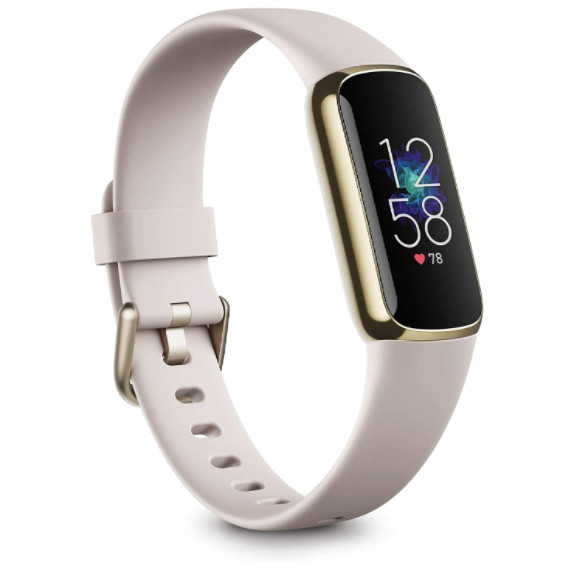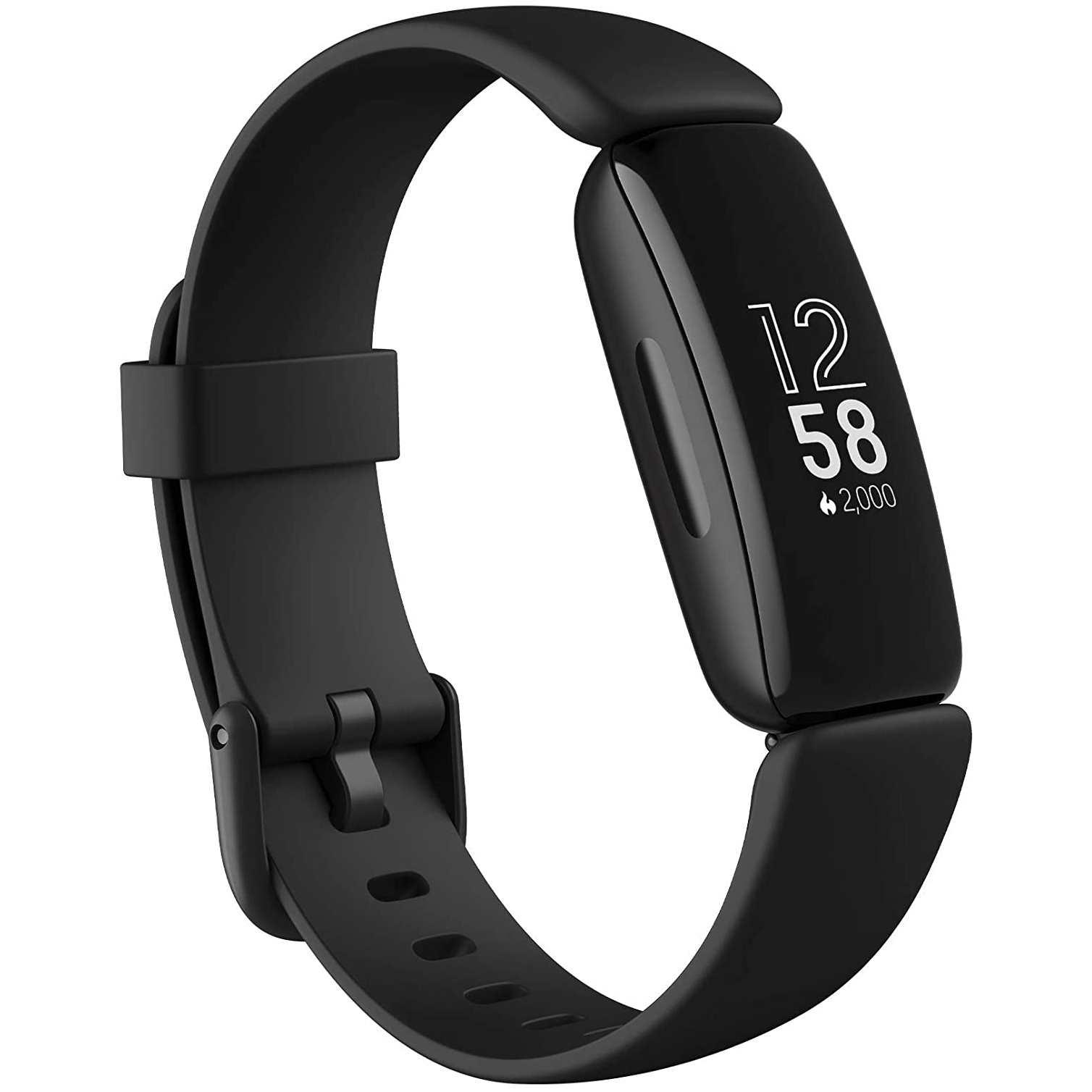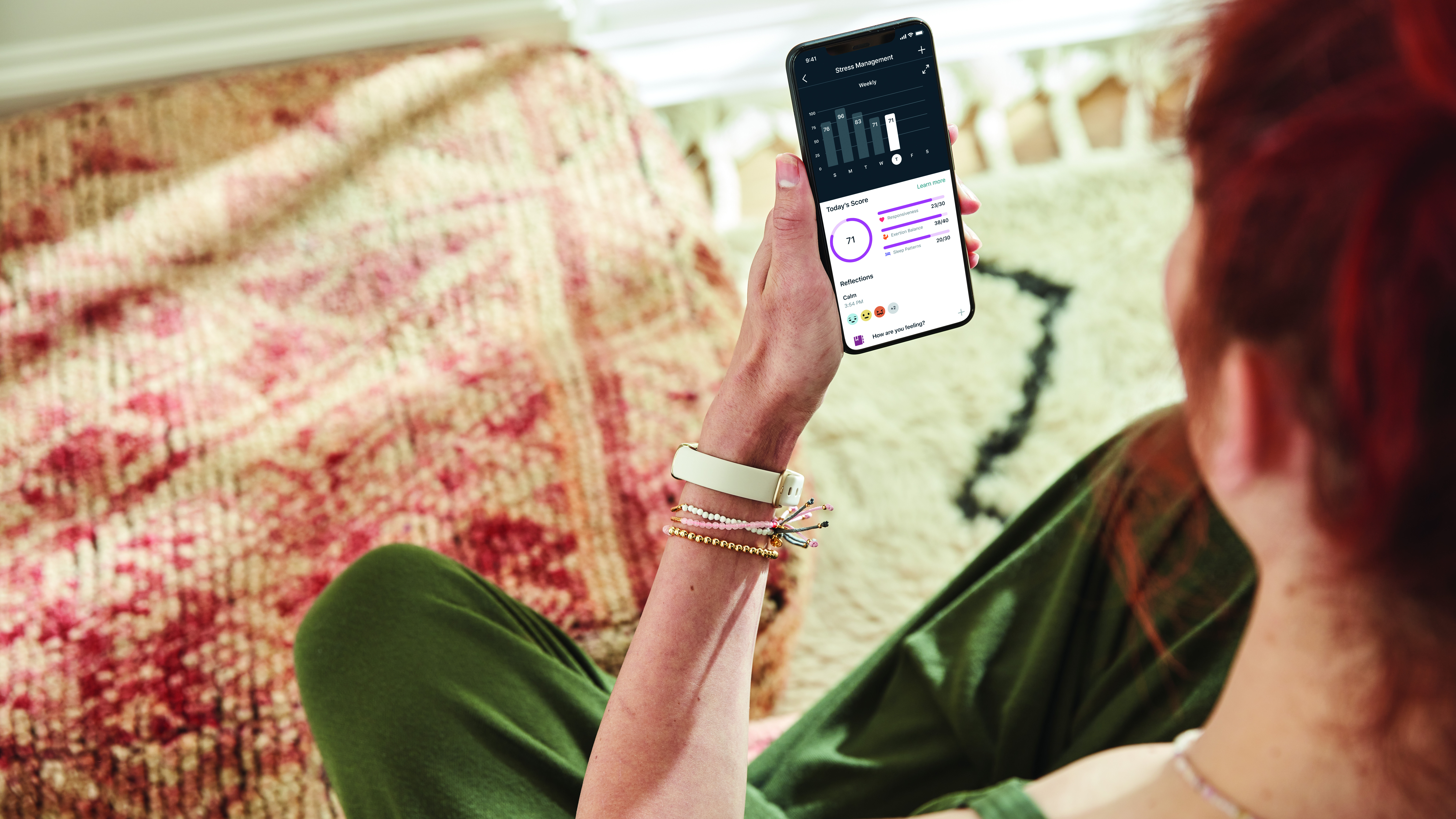Fitbit Luxe vs Fitbit Inspire 2: choose the right fitness tracker for you

Fitbit Luxe vs Fitbit Inspire 2: choose the right fitness tracker for you

Fitbit Luxe review
The Fitbit Luxe is a design and feature-first device. Its polished stainless steel case houses an impressive, color display with beautiful graphics, whereas the Fitbit Inspire 2 has a monochrome, lower-resolution display. Unlike the Inspire 2, he Luxe can also measure skin temperature and blood oxygen saturation, which will grant you a bigger picture of your health.
For
- Sleek, attractive design
- Bright, crisp AMOLED display
- Impressive heart rate monitoring
Against
- Small screen limits visible data
- Fitbit Premium required for full experience

Fitbit Inspire 2 review
The Fitbit Inspire 2 might be a little more basic and feature-lite than the Fitbit Luxe, but considering that it costs around two-thirds the price of the standard edition Luxe, that might be enough to sway more budget-conscious buyers. Plus, the Inspire 2 actually has a far better battery life compared to the Luxem which lasts for around five days between charges, whereas the Inspire 2 keeps going for up to 10 days.
For
- Heart rate feature
- Simple to use
- Excellent app
Against
- Basic functionality
- Small screen
- No in-built GPS
At first glance, the Fitbit Luxe and Fitbit Inspire 2 look very similar, but there are some big differences between the two lightweight fitness trackers.
While there have been no confirmed sightings of a Fitbit Luxe 2 yet, the Fitbit Inspire 3 launched in late 2022
If you’re on a tight budget then the Inspire 2 is the best Fitbit for you. It costs around two-thirds the price of the standard edition Fitbit Luxe, and is often available at a discount from third-party retailers.
Both devices are good-looking, but if style is your top priority then the Fitbit Luxe will be the best fit for you. Its stainless steel case gives it a little extra polish, and the Luxe Special Edition comes with a designer gold-tone chain link bracelet that turns it into a piece of jewelry.
The Luxe also has a much more impressive display, which is color rather than monochrome, and has a higher resolution for crisper graphics. However, this has a big impact on battery life; the Luxe runs for around five days between charges, whereas the Inspire 2 keeps going for up to 10 days. If you don’t want to plug your watch in frequently, the Inspire 2 is the better option.
Both watches offer a good range of fitness tracking tools, but only the Luxe measures skin temperature and blood oxygen saturation, which can be useful indicators of changes to your health, such as possible infection. They’re not medical tools and can’t be used to diagnose a condition, but if you want to most complete picture of your health then they may justify the extra expense of the Luxe.
Read on for more details about both watches so you can make the right decision.

Price
Price
- Fitbit Luxe costs about 50% more than Fitbit Inspire 2
- Fitbit Inspire 2 is often available at a discount
- Both come with a free trial of Fitbit Premium
The Fitbit Luxe became available to pre-order directly from Fitbit on April 19 2021 and started shipping in early July, priced at $149.95 / £129.99 / AU$199.95.
The Fitbit Inspire 2 was released on September 25 2020 for $99.95 / £89.99 / AU$179.95. However, it’s often available at a discount, and we saw some particularly good deals on Black Friday 2020, even though the device was only a month old at the time.
At the time of writing, both devices come with a free six-month trial of Fitbit Premium for new users.
Design and display
Design
- Very similar shape
- Fitbit Inspire 2 has plastic case; Luxe has stainless steel
- Luxe Special Edition has gold-tone designer bracelet
The Fitbit Luxe and Fitbit Inspire 2 both have a slim design with smoothly curved edges (which Fitbit says are inspired by the lines of the human body), but there are several key differences.
The Fitbit Inspire 2 has a case and buckle fastening made from plastic, while those of the Fitbit Luxe are made from stainless steel, which gives a smarter, more premium appearance.
Both devices are are supplied with a silicone wristband, but the Fitbit Luxe Special Edition also comes with a gold-toned stainless steel chain link bracelet from jewelry designer Gorjana. Additional woven, leather, metal and silicone bands for both watches are sold separately.
Both watches are water-resistant to 50 meters, making them suitable for showering and swimming, but not more intense watersports.

Display
- Inspire 2 is monochrome; Luxe is color
- Luxe is much higher resolution
- Luxe’s better screen means reduced battery life
The Fitbit Inspire 2’s display and bright and easy to read in all lighting conditions, but the Fitbit Luxe is far superior.
The Fitbit Inspire 2 has a monochrome backlit OLED display with a 126 x 36 pixel resolution, whereas the Luxe has a full-color AMOLED screen with a resolution of 206 x 124 pixels. That means crisper graphics, clearer text, and a lot more information visible on screen at once.
However, that improved display has a noticeable impact on power consumption. The Fitbit Inspire 2 has a battery life of up to 10 days, while the Fitbit Luxe only runs for five days before needing a charge.
Features
Smartwatch features
- Limited smartwatch features
- App, call and text notifications
Neither of these devices are fully-fledged smartwatches (if that’s what you’re looking for, take a look at the Fitbit Sense and Versa 3), but they still have a modest selection of tools to help you in everyday life,
Both the Fitbit Inspire 2 and Fitbit Luxe allow you to receive call and text alerts, plus smartphone app notifications on your wrist. They are compatible with both Android and iOS smartphones.
There’s no NFC for either device, so you won’t be able to make contactless payments via Fitbit Pay though, and there’s no storage space for music. It’s not possible to download additional apps either.

Fitness tracking
- Both have all-day activity and heart rate tracking
- No on-board GPS for either device
- Fitbit Luxe measures SpO2 and skin temperature
When it comes to fitness tracking, these two watches have a lot more to offer. Both the Inspire 2 and Luxe offer all-day heart rate monitoring (plus resting heart rate and heart rate variability), and count steps throughout the day.
They also have 20+ dedicated sports tracking modes (which can be configured through the Fitbit app), with SmartTrack to automatically detect workouts and begin logging them if you forget to do it yourself. However, unlike the Fitbit Charge 4, Versa 3 or Sense, neither the Inspire 2 nor the Luxe has on-board GPS. Instead, they piggyback on your phone’s GPS to track distance and pace during runs, walks and bike rides.
Want more insight into your health? The Fitbit Luxe also has a pulse oximeter for detecting blood oxygen saturation. This isn’t enabled at launch, but will be activated via a firmware update in the near future.
The Luxe has a sensor for detecting skin temperature, too. This isn’t a substitute for a thermometer (skin temperature can be affected by your environment and physical activity), and can’t be used to diagnose illness, but unexpected changes in skin temperature can be an early sign of infection and are worth investigating.
- Need more fitness features? Check out our guide to the best running watches

